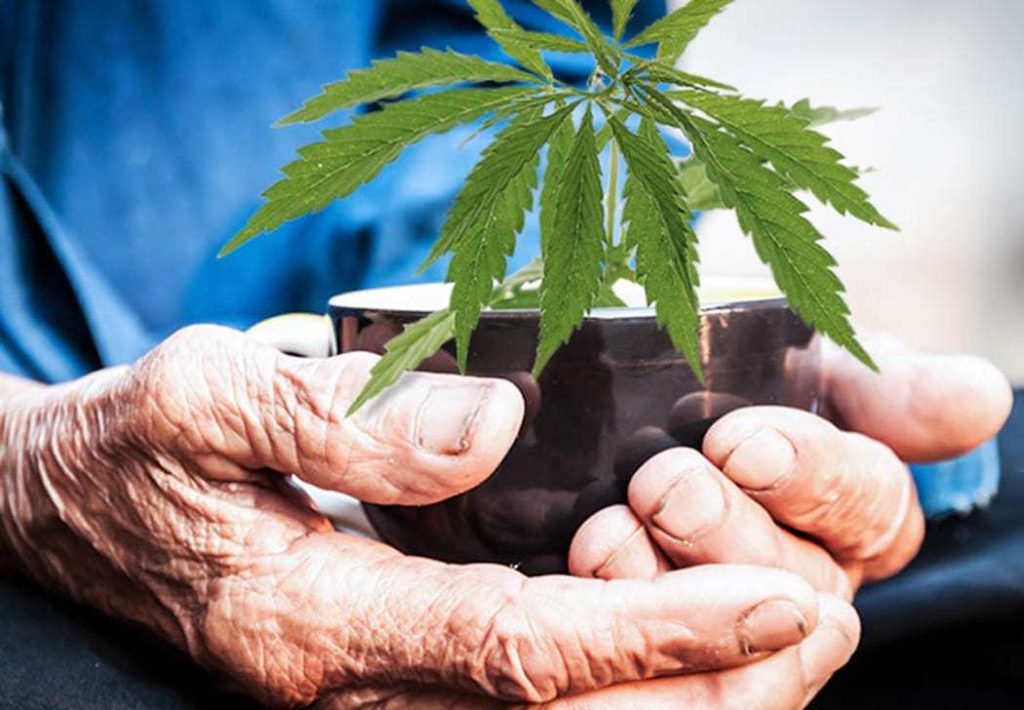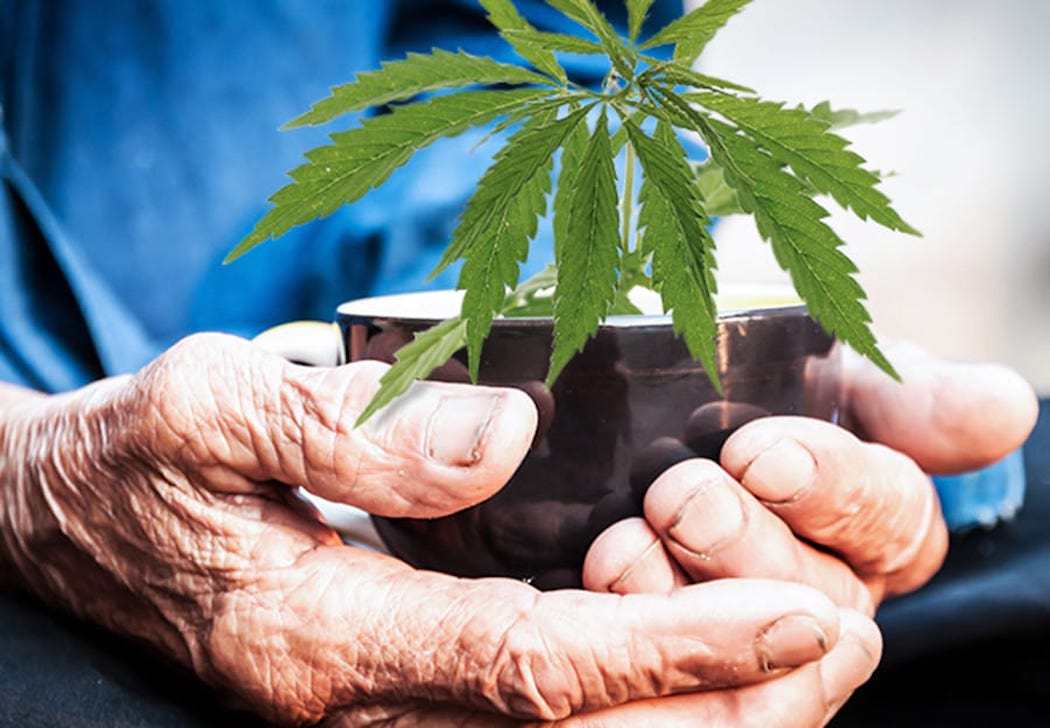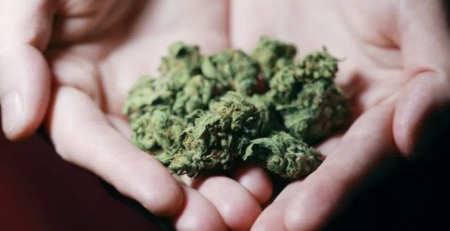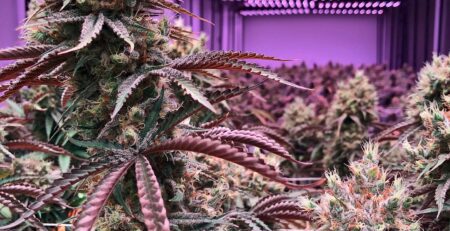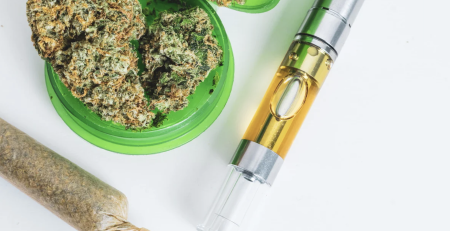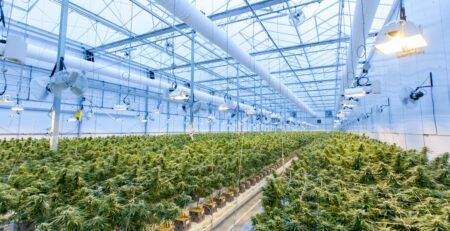Cannabis and the Elderly: Unveiling Benefits, Risks, and Dispelling Misconceptions
Elderly and Cannabis
The landscape of healthcare is evolving, and so is our understanding of alternative treatment options. One such area of interest is the role of cannabis in managing health concerns among the elderly. This post aims to shed light on the benefits, risks, and common misconceptions associated with cannabis use in older adults.
Cannabis, with its myriad active compounds, namely THC (tetrahydrocannabinol) and CBD (cannabidiol), has the potential to address several age-related conditions. Numerous studies suggest that medical cannabis can help manage chronic pain, sleep disorders, and symptoms related to Parkinson’s disease and Alzheimer’s disease. For example, the analgesic properties of cannabis can provide significant relief in conditions like arthritis, a common issue in the elderly. Similarly, its potential neuroprotective effects are being studied for their role in neurodegenerative diseases.
However, while these potential benefits paint an encouraging picture, it’s equally important to consider the risks and side effects. For instance, cannabis, particularly strains high in THC, can have psychoactive effects, leading to dizziness, confusion, or anxiety. It can also interact with other medications, a significant concern considering many older adults are on multiple drugs for various health conditions. Moreover, potential long-term effects on cognitive function can’t be overlooked.
This brings us to the misconceptions associated with cannabis use in older adults. The first major misunderstanding is that using cannabis will invariably result in a ‘high’. However, not all forms of medical cannabis have psychoactive effects. For instance, CBD-dominant strains are often used for their potential therapeutic benefits without inducing a high.
Another common misconception is that smoking is the only way to consume cannabis. In reality, it can be administered in various ways, such as vaporizers, edibles, oils, and tinctures, providing alternatives that are safer and easier for the elderly. It is often incorrectly assumed that cannabis usage is addictive. While it’s true that a small proportion of people may develop a dependence on cannabis, the risk is significantly lower than many other substances, including prescribed opioids. Moreover, under proper medical guidance, the benefits of controlled cannabis use can far outweigh this risk for many patients.
It’s important to remember that everyone’s reaction to cannabis can vary, and what works for one person may not work for the next. It’s also crucial to involve healthcare providers in the discussion about incorporating cannabis into treatment plans, to ensure its use is safe and beneficial. While research into the role of cannabis in the healthcare of the elderly is ongoing, early results are promising. As the scientific community continues to explore, understand, and challenge the boundaries of what we know about cannabis, there’s hope that this plant could enhance the quality of life for our older population in ways we’re just beginning to comprehend.
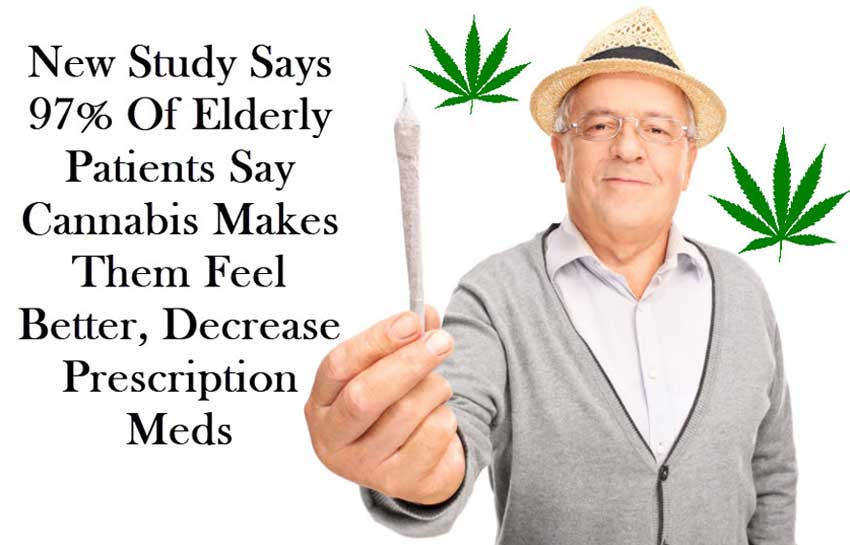
Importance of understanding Cannabis and Elderly
- Here are some important factors!
- Understanding the Aging Process and Common Elderly Health Issues: To comprehend why cannabis holds potential benefits for the elderly, it is crucial to first understand the aging process and the common health issues faced by older adults. Discuss the impact of aging on the body, such as chronic pain, inflammation, sleep disorders, anxiety, and neurodegenerative diseases.
- The Science Behind Cannabis and the Endocannabinoid System (ECS): Introduce the endocannabinoid system (ECS) and explain its role in maintaining balance within the body. Detail how cannabinoids found in cannabis, such as THC and CBD, interact with the ECS, influencing various physiological processes.
- Cannabis as a Natural Pain Management Alternative: Highlight the potential of cannabis in alleviating chronic pain commonly experienced by the elderly, including arthritis, neuropathy, and fibromyalgia. Discuss studies and anecdotal evidence that support the analgesic properties of cannabis, while also addressing concerns related to dosage, side effects, and potential drug interactions.
- Cannabis for Sleep Disorders and Mental Health: Explore the impact of sleep disorders and mental health issues, such as insomnia, anxiety, and depression, on the elderly population. Discuss how cannabis, particularly CBD-rich strains, may help improve sleep quality, reduce anxiety, and enhance mood. Emphasize the importance of consulting healthcare professionals for personalized guidance.
- Potential Applications in Neurodegenerative Diseases: Discuss the emerging research on cannabis and its potential neuroprotective properties in age-related neurodegenerative diseases, such as Alzheimer’s and Parkinson’s. Cite studies that suggest cannabinoids may help manage symptoms, slow disease progression, and enhance cognitive function.
- Safe and Responsible Cannabis Use for the Elderly: Provide practical tips for safe and responsible cannabis use among the elderly, including dosage guidelines, methods of consumption (e.g., oils, tinctures, edibles), potential risks, and the importance of consulting healthcare providers. Address concerns regarding the psychoactive effects of THC and potential cognitive impairment.
- Legal and Regulatory Considerations: Briefly discuss the evolving legal landscape surrounding cannabis, highlighting the variations in regulations across different regions and the importance of complying with local laws. Provide resources for readers to stay informed about the legal status of cannabis in their area.
